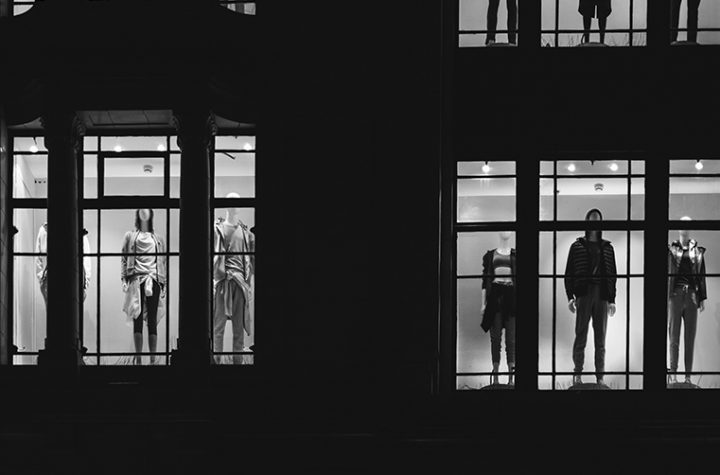
By the time the House voted to impeach Donald Trump in mid-December, a grim anti-climactic feel had settled upon the proceedings. Senate Republicans, unimpressed by hundreds of pages of testimony and documents establishing the presidents scheme to extort Ukraine to smear his domestic opponents, would dispatch the articles of impeachment quickly and as these things go quietly. This was their strategy all along: Strip away the drama and turn impeachment into yet another partisan squabble, rather than a historic judgment on Trumps unfitness for office. Their plan is to smother it with sheer boredom.
They may still succeed. But a series of revelations in the intervening month has opened up surprising new avenues of inquiry, forcing Republicans either to allow new evidence at the Senate trial or to openly cooperate in a cover-up.
So far, Republicans have dismissed the new evidence with juvenile logic games. If the existing case is strong, theres no need for the judge and jury to reopen the investigation. If the existing case is weak, House Democrats should not have impeached in the first place, said Senate Majority Leader Mitch McConnell. (Obviously, the strength of evidence is a continuum, not a binary choice of either strong or weak. It can be strong enough to satisfy House Democrats yet not strong enough for Senate Republicans, in which case the higher bar merits additional evidence.) Senator Susan Collins expressed her lack of interest in new documents furnished in January by wondering why the House did not put that into the record and its only now being revealed. When a reporter replied that the documents had been blocked until then, she shot back, Well, doesnt that suggest that the House did an incomplete job, then? The more new evidence of guilt that is revealed, the more evidence there is that the prosecution is weak. Therefore, it should be ignored.
Trumps impeachment articles have two counts: First, abuse of power by manipulating foreign policy for personal gain, and second, obstruction of Congress by wholesale stonewalling. House Republicans essentially used the second count to negate the first. By seizing on tiny gaps in the evidentiary record gaps that existed because Trump refused to release any testimony or documents they denied Trump had withheld a meeting and military aid from Ukraine in order to force investigations.
Since then, evidence, some pried loose by lawsuits, has dismantled those defenses. A batch of emails released in late December showed the Office of Management and Budget ordered a freeze on aid almost immediately after Trumps phone call with Ukraines president. Then, in January, another tranche of emails found the Defense Department raising concerns about the freezes legality. Weeks later, the Government Accountability Office deemed the freeze illegal, making moot the defense that Trump hadnt technically violated laws. Also this month, former national-security adviser John Bolton, who had refused to testify before the House, announced his willingness to testify in a Senate trial.
The most explosive revelations came from a trove of documents turned over by Lev Parnas, a small-time hustler who was recruited by Rudy Giuliani to help run Trumps extortion scheme. Parnass documents thousands of pages of texts, WhatsApp messages, notes, and letters widen the scope of suspected misconduct in Ukraine. They show him explicitly discussing firing the U.S. ambassador, Marie Yovanovitch, in return for then Ukrainian prosecutor general Yuriy Lutsenkos supplying dirt on Biden, whom Lutsenko describes frankly and revealingly as your opponent.
The texts also introduce another participant in the scheme: Robert Hyde, a former Marine, whose texts with Parnas indicated he was surveilling Yovanovitch (this bitch, he called her in one) and hinted at plans to threaten or commit violence. Hyde, a Republican congressional candidate from Connecticut, has a history of erratic behavior, including alleged stalking and harassment, and was involuntarily committed to psychiatric treatment after an incident at the Trump National Doral resort in May. Parnas has dismissed those texts as unserious boasts perhaps because they were, or perhaps because they incriminate him in a violent plot. Yovanovitch fled Ukraine on the next plane after being warned of an imminent threat. Hyde has also visited Trumps White House and been photographed with the president at least eight times. The unresolved details of how Parnas got involved, and who paid for his work if he did any, might be illuminating.
Parnass physical evidence also corroborates his claims in the media that Trump approved his activities. President Trump knew exactly what was going on, he said in a prime-time interview with Rachel Maddow on January 15. Based on his sensational claims alone, Parnas may come off as an unreliable narrator, someone looking for a life raft after a federal indictment. But Parnass WhatsApp messages prove he was in the loop. He sent the text of an op-ed by John Solomon (a right-wing journalist who worked closely with Trumps allies) to Lutsenko four days before it was published and knew about Yovanovitchs firing a day in advance. (The bomb is dropping tomorrow, he wrote in a message to another Giuliani associate, GOP donor Harry Sargeant III.) He has a letter from Trump attorney Jay Sekulow to former Trump lawyer John Dowd saying, The president consents to allowing your representation of Mr. Parnas.
The White House has predictably dismissed Parnass credibility in the same terms it uses when other Trump flunkies rat him out. This is a man who is under indictment and whos actually out on bail, said White House press secretary Stephanie Grisham. This is a man who owns a company called Fraud, Inc. (On a federal political-contributions form, Parnas actually listed his employer as Fraud Guarantee rather than Fraud, Inc., which sounds only slightly more savory.) Perhaps the most damning specimen in the Parnas collection is a letter of introduction from Giuliani to Ukrainian president Volodymyr Zelensky. Giuliani wrote that he was representing Trump as a private citizen, not as President of the United States, and that he was doing so with his knowledge and consent. Perhaps sensing that the arrangement would strike Zelensky as untoward, Giuliani assured him it is quite common under American law.
It is, of course, extremely uncommon under American law for the president to have a private attorney negotiate on his behalf with a foreign head of state. One reason is that a personal lawyer might use the foreign-policy capital of the U.S. government not on behalf of the national interest but for the presidents personal gain. Another reason is that a private lawyer, not being paid or vetted by the government, might be beholden to some other financial interest. Giuliani represented Trump for free but was paid half a million dollars by Parnass company. In turn, Parnas received a million dollars from Dmytro Firtash, a Ukrainian oligarch closely linked to Vladimir Putin and the Russian mob.
At one point during the Watergate scandal, President Nixon discussed funneling hush money to the burglars. White House counsel John Dean cautioned him, People around here are not pros at this sort of thing. This is the sort of thing Mafia people can do: washing money, getting clean money, and things like that we are not criminals and not used to dealing in that business. Trump is not so encumbered. His career was spent working with New York mobsters, bringing in mobbed-up figures like Michael Cohen and Felix Sater and relying on money launderers for cash. The Republican Partys boredom strategy requires its members to maintain an aggressive, almost fanatical lack of curiosity about the growing roster of goons surrounding the president and a money trail that leads to Moscow. There have always been plenty of lowlifes hanging around Trump. His hangers-on seem to absorb his character. One thing the impeachment trial will measure is the degree to which this process has taken hold of the entire Republican Party.
*This article appears in the January 20, 2020, issue of New York Magazine. Subscribe Now!
Get the latest from Jonathan Chait in your inbox.
Analysis and commentary on the latest political news from New York columnist Jonathan Chait.
Terms & Privacy NoticeBy submitting your email, you agree to our Terms and Privacy Notice and to receive email correspondence from us.





More Stories
The South Australian government has promised to deliver the “biggest hit of economic adrenalin in South Australian history” in Tuesday’s budget.
Boris Johnson will proceed with his controversial Brexit bill despite US president-elect Joe Biden having previously warned the UK over the draft legislation.
Singapore-based Nektar.ai, a productivity platform for sales teams, has raised $2.15 million in seed funding. Founded earlier this year, Nektar has been working in stealth mode with five companies, and has plans for an early adopter release before a public la…